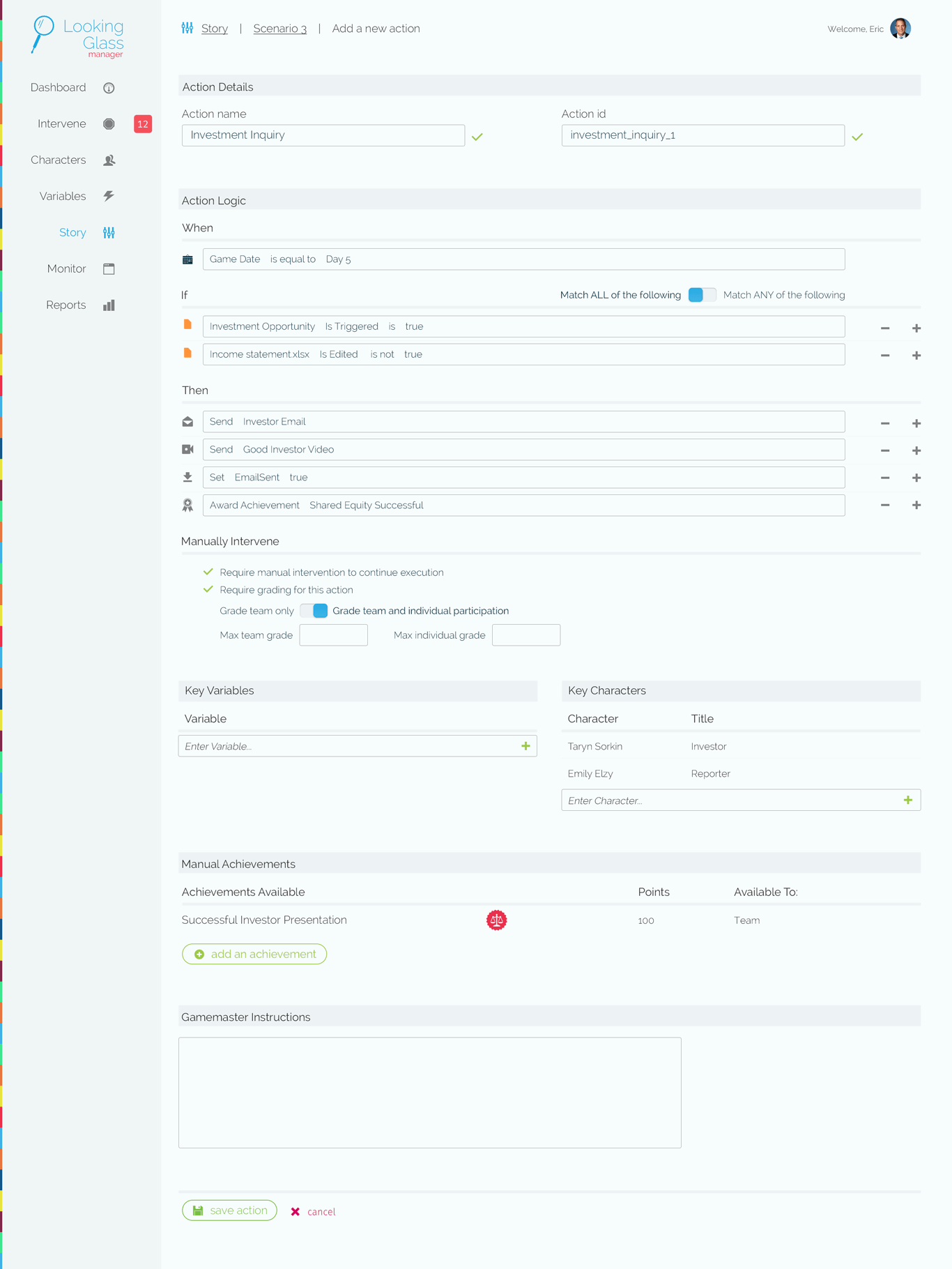
Alternate Reality Teaching

The University of Pennsylvania Wharton School of Business teamed up with Forio to create a simulation story engine, “Looking Glass,” for creating, administering, and playing Alternate Reality Teaching scenarios.
Alternate Reality Teaching (ART) is a new way of providing experiential learning by creating a realistic, largely unbounded virtual experience that plays out over the course of weeks or months…The students interact with each other and non-player characters (NPCs) as they make decisions and encounter obstacles. The Wharton School of the University of Pennsylvania
Forio developed the interface for this “story engine,” working in collaboration with Sarah Toms of the University of Pennsylvania’s Wharton School of Business and her team.
Simultaneously, Sarah and her team created a series of intricate storyboards to describe various scenarios that students might be exposed to over the course of the simulation. The facilitator interface for the simulation allows for almost unlimited flexibility and customizability of the storyline through a programmable interface. With their storyboard as a guide, Sarah and team used the facilitator interface to define when, how, and why events are triggered for students.
Through a separate player interface, students can interact with both computer-generated and physically staffed characters, traversing the “implementation” of the storyboard to successfully launch their startups. An elaborate world that encompasses dozens of websites built just for the game allows students to use the same tools they would in real startups, but from within the simulation. A series of badges, achievements, and leaderboards motivate and guide students as they progress. The simulation extends the learning beyond the confines of the classroom to create a truly immersive experience.
This simulation was awarded Silver in both the Hybrid Learning and Social Sciences and MBA categories of the Reimagine Education STARS Awards in 2015. Read more about the objective, approach, engagement, and impact of Looking Glass, and review the details of the Looking Glass interface.

Facilitator Game Programming Interface



- Back to All Works
- Case Study: Faces App
- Case Study: Forio Epicenter
- Case Study: PennSTART
- Everest Simulation
- Alternative Fuel Vehicle Simulator
- Alternate Reality Teaching
- Texas Electricity-Water Nexus Simulator
- Investment Portfolio Simulation
- Latino Vote Map
- VenueConnect: Masters Thesis
- Compare-O-Marator
